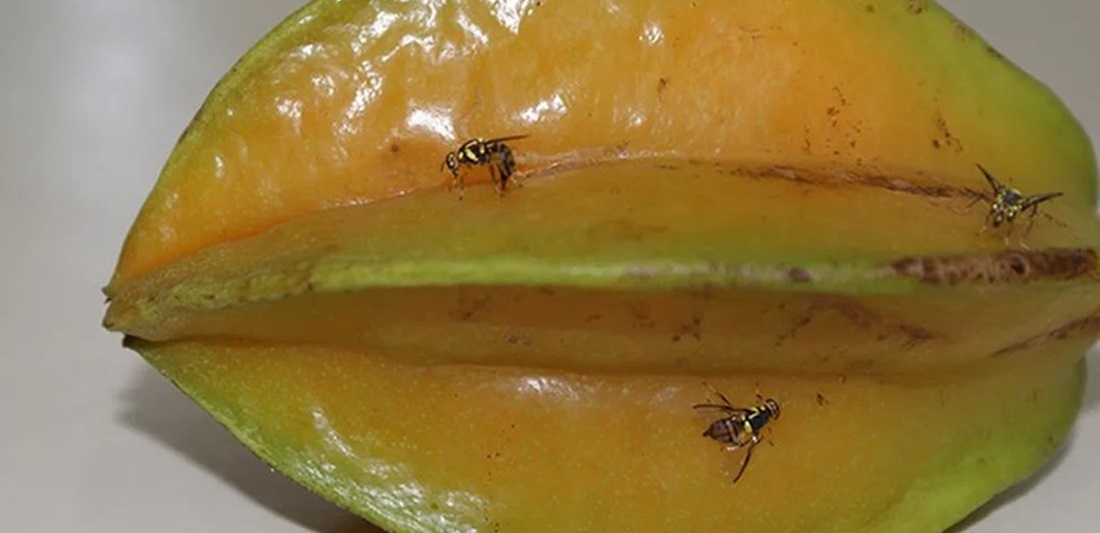
Ceará state wants to expand fruit fly-free area in pro-export bet
Feb, 15, 2024 Posted by Gabriel MalheirosWeek 202407
Ceará state aims to expand the area certified as fruit fly-free, which currently covers 11 cities in the Jaguaribana region, near the border with Rio Grande do Norte.
The state’s main goal is to further boost fruit exports, which reached a record volume last year, and a commercial value of around US$1.3 billion.
At the Port of Pecém alone, over 200,000 tonnes were exported in 2023, up 14% from a year prior.
Fruit Exports from Pecém Port | Jan 2019 – Dec 2023 | TEUs
Source: DataLiner (click here to request a demo)
Certification
Having as many cities as possible certified as a fruit fly-free area serves the purpose of gaining, consolidating, or regaining markets, explained Sílvio Carlos Ribeiro, Executive Secretary of Agribusiness at the Secretariat of Economic Development (SDE).
“We can expand the area to various municipalities in Ceará because, for example, the United States is very serious about avoiding this pest,” said the executive.
The US market, by the way, is one of the main focuses of Ceará’s fruit producers, according to the secretary.
“In the past, we kept a solid export flow [to North America], and due to the unfavorable taxation in the United States, this volume decreased and the European market became more attractive. Still, now we are starting to think about the United States again, which has been widely discussed,” he said.
“In recent years, Ceará has started to pay attention to the Middle East, which has a very interesting consumer market. We also began to target other parts of Asia, and then China asked for more fruits,” added the Executive Secretary of Agribusiness at the SDE. “Germany, for example, is looking for sustainably-produced fruits that have an ESG footprint. Thus, we are talking to German institutions to work with producers from Ceará,” added Sílvio Carlos Ribeiro.
The institutional director of the Brazilian Association of Fruit Exporters (Abrafrutas), Luiz Roberto Barcelos, also emphasized the importance of establishing an area free from fruit flies. “Many nations want to be sure that when they purchase Brazilian fruits, there will be no pest-carrying larvae present. Thus, we’ve been investing in pest-free areas through phytosanitary barriers and monitoring,” he said.
According to Barcelos, Abrafrutas “has worked with local governments, sometimes providing materials, such as traps to catch insects, other times aiding with strategic planning, and dealing with political pressure so that these actions do not lose momentum so that we do not end up having a hard time creating these fruit fly-free areas.”
Overview of Fruit Farming in Ceará*
Fruit Exports
2023 – 200,856 tons
2022 – 176,957 tons
Variation: Increase of 14%
Main Products
Fresh melon, watermelon, and papaya: 96,988 tons (Increase of 4%)
Dates, figs, pineapples, avocados, guavas, mangoes, and mangosteens, fresh or dried: 68,670 tons (Increase of 14%)
Fresh or dried grapes: 26,784 tons (Increase of 59%)
Fresh or dried coconut, Brazil nuts, and cashews: 6,423 tons (Increase of 48%)
Fresh or dried bananas: 1,022 tons (Increase of 449%)
Lead Times
Rotterdam/Netherlands – 14 days
London/England – 16 days
Hamburg/Germany – 18 days
Bremerhaven/Germany – 20 days
Antwerp/Belgium – 23 days
Le Havre/France – 25 days
Sines/Portugal – 29 days
*Data use Port of Pecém as reference.
Source: O Povo
Click here to read the original text: https://mais.opovo.com.br/jornal/economia/2024/02/15/ceara-quer-ampliar-area-livre-da-mosca-das-frutas-mirando-exportacoes.html
-
Dec, 21, 2023
0
China ranks 1st among sugar export destinations through the Port of Santos
-
Grains
Jan, 22, 2024
0
US soybean producers visit Itaqui Port
-
Meat
Dec, 26, 2024
0
Brazilian meatpackers set for tighter margins in 2025
-
Other Logistics
Jun, 13, 2019
0
Argentina increases use of rail to transport cargo



